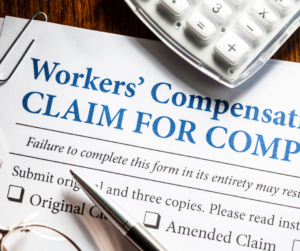What is an Appeal?
An Appeal is, “The complaint to a superior court of an injustice done or error committed by an inferior one, whose judgment or decision the court above is called upon to correct or reverse.” (Black’s Law Dictionary 124. 4th Ed. Rev. 1968)
The appeal process involves a losing party requesting a higher court to reconsider a ruling or decision made at trial. Most appeals take place in an appellate court. The party making an appeal is known as the appellant, while the original winning party is known as the appellee or respondent. Common errors that can be considered proper grounds for appeal may include legal application errors by a sitting judge, procedural errors conducted by attorneys, or evidence issues such as improper evidence being allowed in court or important evidence being wrongfully excluded from court. After arguments from both the appellant and appellee as to why a court’s decision is either proper or not, the appellant court will decide to affirm, reverse, or remand that decision. When a decision is remanded, that particular case is sent back to a lower court for a new trial or other proceedings.
An appeal can only be made after a final judgment is made. A case can not be appealed when it is ongoing or if facts of the case are in dispute. Rulings in cases such as Bowersock v. Missouri Valley Drainage Dist. of Holt County clarify that appeals are continuations of existing lawsuits, not lawsuits themselves. While appeals may lengthen the legal process, they are seen as vital parts of the justice system. They exist to insure that errors or issues don’t result in the wrong rulings.
More information about Appeal
PA Workers’ Compensation Denials
As a state with a long history of being at the forefront of industry, manufacturing, natural resources, and transportation, Pennsylvania has a long relationship with the fight for worker rights.
The need to safeguard workers became increasingly apparent as Pennsylvania’s industrial revolution moved forward in the early 20th century. Hazardous workplace conditions caused injuries to grow in both type and frequency. This surge in workplace accidents highlighted the necessity for laws designed to protect employees, leading to the development of workers’ compensation regulations. The Pennsylvania Workers’ Compensation Act of 1915 was a law that provided employees with financial protection while requiring employers to maintain workers’ compensation insurance coverage.
If you have experienced a workplace injury in PA, you should be able to rely on this historic Pennsylvania state law to provide a financial safety net for you and your family while you recover. […]
Read MoreMore information about Appeal
Easton Workers’ Compensation Lawyer
When you are injured at work, medical expenses can quickly add up. Workers’ compensation benefits are designed to help workers with financial support in the event of a workplace injury due to an accident or repetitive stress (such as back injuries or carpal tunnel) or work-related illnesses from poor, unsanitary, or unsafe working conditions.
Whether your injury occurred in Easton, Allentown, or elsewhere in the Lehigh Valley, finding an experienced Easton workers’ compensation lawyer can help. The team of dedicated attorneys at Munley Law’s Lehigh Valley law office will work tirelessly to ensure you receive maximum workplace injury benefits.
If your workers’ comp claim is denied, don’t panic. The experienced workers compensation attorneys at Munley Law in Easton can help you appeal the decision and fight for the benefits you are entitled to. We have a strong track record of successfully handling denied claims and will use our expertise to advocate for you. […]
Read MoreMore information about Appeal
Erie Workers’ Compensation Lawyer
Under the Pennsylvania Workers’ Compensation Act, employers must provide workers’ compensation benefits to part-time and full-time employees should they become hurt or ill at work. Workers’ comp benefits cover medical expenses and lost wages until you can return. However, the workers’ compensation process can be difficult, and an Erie workers’ compensation lawyer must navigate the claim.
If you were injured at work or have an occupational disease and are now undergoing the workers’ compensation claim process, call Munley Law. We represent injured workers applying for or being denied workers’ compensation benefits.
What Do I Need For an Erie Workers’ Compensation Claim?

You will first need to report the accident to your employer. You have 21 days from the accident date to file the claim. […]
Read MoreMore information about Appeal
Personal Injury Glossary Terms
This glossary provides a quick-access resource for looking up definitions of terms you will likely encounter while seeking compensation.
A | B | C | D | E | F | G | H | I | J | K | L | M | N | O | P | Q | R | S | T | U | V | W
A
Accident Report — A detailed official record of an incident created on-site by an authority figure such as a police officer or hospital staff member.
Act of God — An unforeseen event caused by natural forces without human involvement that couldn’t have been prevented with reasonable care, […]
Read MoreMore information about Appeal
Easton Workers’ Compensation Death Benefits
Losing a loved one due to a work-related incident is an unimaginable tragedy, and during such a difficult and life-changing experience, it helps to know there is financial help through Pennsylvania workers’ compensation insurance.
In Pennsylvania, workers’ compensation death benefits are a form of financial assistance provided to the dependents and beneficiaries of an employee who has tragically lost their life due to a work-related incident or illness.
If you have lost a loved one in a work accident or due to an illness or disease from workplace conditions in Easton, PA, or any illness aggravated by workplace conditions, call Munely Law today.
Our Easton workers’ compensation attorneys have more than 60 years of fighting for the rights of Pennsylvania workers.
Let us help you understand what you are entitled to, navigate the workers’ compensation system, and receive your maximum allowed benefits. […]
Read MoreMore information about Appeal
Easton Workers’ Compensation FAQs
What Type of Workforce Exists in Easton?
A central player in the American Industrial Revolution, Easton has always been a key figure in the life and commerce of the Lehigh Valley. You can still witness Easton’s historical canals that connected the area’s vibrant coal, steel, and iron industries. Easton’s commercial history is undeniable and today, Easton still boasts a vital and adaptable workforce.
If you have been hurt at work in Easton or have an injury aggravated by working conditions, you might have many questions about workers’ compensation benefits and workers’ compensation law in PA. You should know that you have a right to collect workers’ compensation benefits to cover your medical bills and lost wages for work missed while you recover from your work-related injury or illness.
Our Easton workers’ compensation lawyers have more than six decades of experience navigating workplace injuries including healthcare worker accidents, […]
Read MoreMore information about Appeal
Stroudsburg Workers’ Compensation FAQs
Do I Need a Workers’ Compensation Lawyer in Stroudsburg?
If you have been hurt on the job or become sick, you want to notify your employer immediately, seek appropriate medical treatment from a licensed medical provider, and start applying for your workers’ compensation benefits as soon as possible. If you have experienced an injury or illness on the job and are unsure what your next steps should be, you want an experienced Stroudsburg workers’ compensation attorney fighting for your just compensation for your work-related injury or illness.
Below, you will find frequently asked questions we receive from our workers’ comp clients in Stroudsburg about their injuries and their claims. If you are injured while on the job, call the Stroudsburg workers’ compensation law firm with six decades of building a national reputation as a leader in personal injury law. […]
Read MoreMore information about Appeal
Can You Sue for a Workplace Injury in Mehoopany, PA?
If you’ve been injured at your workplace in Mehoopany, you may wonder whether you should first talk with a Mehoopany workers’ compensation lawyer before deciding to sue. Let’s explore the compensation process and when you might consider additional legal action.
How Can Workers’ Compensation Help Me After My Work Injury?
Workers’ compensation is a legal safety net—covering everything from wage replacement to death-benefit payments when tragedy strikes. If you’ve sustained a workplace injury in Mehoopany, you can file a workers’ compensation claim to seek financial support for medical bills and lost wages. These claims serve as a lifeline for injured workers who might otherwise suffer significant hardship.
It’s vital to understand every right—especially niche awards like specific-loss benefits—and the full menu of compensation available under the Pennsylvania Workers’ Compensation Act.
Most employers in Mehoopany must provide workers’ comp coverage. […]
Read MoreMore information about Appeal
Mehoopany Workers Compensation and Specific Loss
Navigating Workers Compensation in Mehoopany: A Comprehensive Guide by Munley Law
Mehoopany thrives due to a dedicated workforce contributing to the local community. Sometimes, work accidents happen, and the results can be life-changing. Suppose you or a loved one has been injured at work or has become sick from working conditions. In that case, the Mehoopany workers’ compensation lawyers at Munley Law are here to guide you through the sometimes confusing details of workers’ compensation law, ensuring you know your rights as a worker in Mehoopany.
 What is Worker’s Compensation?
What is Worker’s Compensation?
The Pennsylvania Workers’ Compensation Act is a robust legal framework that protects workers’ rights. Suppose you’re an injured worker in Mehoopany. In that case, this act is your shield against the financial burdens of work-related injuries or occupational diseases or in the event of a fatal workplace injury or disease. […]
Read MoreMore information about Appeal
York Workers’ Compensation Lawyer
Navigating the complexities of workers’ compensation laws in York, PA, can be overwhelming. That’s why our York workers’ compensation lawyer is here to help. Every day, the legal team at Munley Law represents injured York workers across various industries, helping them understand that each case is unique and requires a personalized approach. Whether you’re dealing with medical expenses, lost wages, or the stress of recovery, our goal is to alleviate your burden and guide you through the legal process with expertise and compassion.
How Can Our York Workers’ Compensation Attorneys Help With Your Benefits

Understanding Your Rights
Your workers’ comp lawyer will explain the benefits available under Pennsylvania workers’ […]
Read MoreMore information about Appeal
Easton Product Liability Lawyer
When you buy a product, you trust it to be safe and work as advertised. Unfortunately, this isn’t always the case. Sometimes, products can be defective, leading to injuries or other damages. This is where it helps to have an Easton product liability lawyer by your side to help you with your claim. These claims are a way for consumers to seek compensation when a product causes harm due to fault in its design, manufacture, or marketing.
If you were injured by a defective product in Easton, contact Munley Law to schedule a free consultation. We have more than 60 years of experience with product liability claims throughout the Lehigh Valley, and we’ll make sure you are properly compensated for your injuries.
What Are the Types of Defects Found in Product Liability Claims?

More information about Appeal
Norristown Workers’ Compensation: Specific Loss Benefits
If you find yourself here, you likely have questions about specific loss benefits, a crucial aspect of workers’ compensation that pertains to work-related injuries resulting in the permanent loss or disfigurement of certain body parts or functions. In this detailed guide crafted just for you, we delve into the nuances of specific loss benefits within the context of Norristown, your home.
As an injured worker in Norristown, you’re not just seeking legal assistance; you’re searching for a team of experienced professionals who understand the local landscape. Our dedicated Norristown workers’ compensation lawyers at Munley Law specialize in ensuring that you receive every benefit you’re entitled to under Pennsylvania’s Workers’ Compensation Act. We understand the complexities of workers’ compensation law and the challenges that injured workers face. You deserve every penny of the benefits you are entitled to, especially during the physically and emotionally challenging times following a work-related injury or occupational disease. […]
Read MoreMore information about Appeal
Norristown Workers’ Compensation Lawyer
If you were injured at work in Norristown, you may find yourself with a number of urgent questions: how will this affect your livelihood? How long will I be out of work? Who pays for my medical bills? What if my workers’ comp claim is denied? Having an experienced Norristown workers’ compensation lawyer on your side can not only provide peace of mind but can also make a big difference in the outcome of your claim. Hiring a workers’ compensation lawyer is not about suing your employer; rather, it’s about ensuring that you receive the benefits you deserve and that your employer and their insurer adhere to Pennsylvania’s workers’ comp rules.
If you were injured on the job in Norristown and need help with your worker’s comp benefits, our worker’s compensation attorneys are here to help. Contact Munley Law today to schedule a free consultation. […]
Read MoreMore information about Appeal
Lower Merion Motorcycle Accident Lawyer
Motorcycle riding offers an unparalleled sense of freedom and thrill. However, with this freedom comes an increased risk of accidents, especially in densely populated areas. Lower Merion, situated in Montgomery County, Pennsylvania, is no exception, and our Lower Merion personal injury lawyers have seen firsthand how quickly a pleasant ride can turn tragic. While motorcycles represent a small fraction of vehicles on the road, they account for a disproportionately high number of traffic injuries and fatalities.
The aftermath of a motorcycle accident can be devastating, both physically and emotionally. Medical bills, rehabilitation costs, lost wages, and the emotional trauma can be overwhelming for victims and their families. In such trying times, having a specialized Lower Merion motorcycle accident lawyer by your side can make a significant difference. This guide aims to shed light on the importance of hiring a dedicated attorney for motorcycle accidents in Lower Merion and how they can assist victims in navigating the complex legal landscape. […]
Read MoreMore information about Appeal
Lower Merion Wrongful Death Lawyer
Pennsylvania’s premier personal injury representation
In the picturesque setting of Lower Merion, coupled with the vibrant and historic backdrop of Philadelphia, the importance of local representation in sensitive matters like wrongful death is magnified. Lower Merion is nestled amidst landmarks like the historic Ardmore Library and the picturesque Cynwyd Heritage Trail, where the complexities of navigating a wrongful death case demand local expertise. Situated a stone’s throw from Philadelphia, Lower Merion uniquely benefits from both its tranquil suburban charm and proximity to urban resources. Law firms like Munley Law’s Lower Merion personal injury team, deeply rooted in this community and recognized as leading Pennsylvania wrongful death lawyers, offer an unparalleled blend of local insight and broader legal insight. Their deep understanding of the region ensures affected families receive justice with a touch of compassion, bridging both the Merion community and the larger Philadelphia metropolitan area. […]
Read MoreMore information about Appeal
Lancaster Workers Compensation FAQs

If you or a loved one has encountered a work-related injury or illness in the heart of Lancaster County, you’ve come to the right place for answers.
Munley Law knows Lancaster county
Lancaster County is known for its rich heritage, from its picturesque farmland to its thriving arts and culture scene. However, whether you work in agriculture, manufacturing, healthcare, or any other industry, workplace injuries and illnesses can occur anywhere. It’s essential to be informed about your rights and options when facing these challenges, and that’s where we come in.
Below, you’ll find frequently asked questions on various aspects of workers’ comp, ensuring you have the knowledge you need to protect your rights. […]
Read MoreMore information about Appeal
FAQs About Workers’ Compensation in Harrisburg, PA
Harrisburg, Pennsylvania: Your Workers’ Compensation Questions Answered
As your dedicated workers’ compensation lawyers in Harrisburg, we understand that navigating the intricacies of workers’ compensation law can be challenging. That’s why we’ve compiled this extensive guide to provide you with essential insights and guidance tailored to our local community.
When it comes to workers’ compensation, you need information that’s not only accurate but also relevant to your specific circumstances. Munley Law’s Harrisburg-based legal team has deep roots in the local community and a wealth of experience assisting injured workers and their families throughout the Susquehanna Valley.
Why Choose a Local Harrisburg Attorney for Workers’ Compensation?
Before we dive into your questions, let’s address why having a local workers’ compensation attorney in Harrisburg, Pennsylvania, matters when dealing with workers’ compensation. The nuances of workers’ comp law can vary from one state to another, […]
Read MoreMore information about Appeal
Frequently Asked Questions About Workers’ Compensation in Bensalem
At Munley Law, we understand that navigating the world of workers’ compensation can be complex and overwhelming, especially during times of stress. That’s why we’ve created this resource – to provide you with clear, local, and relevant information about workers’ compensation in Bensalem. We have more than 60 years advocating for injured workers in Bensalem, PA.
Why Workers’ Compensation Matters in Bensalem 
Bensalem, a vibrant and bustling community in Bucks County, Pennsylvania, is home to hardworking individuals who contribute to various industries.
Whether you’re employed in healthcare, manufacturing, retail, or any other sector, understanding your rights and options when it comes to workers’ compensation is essential. Accidents and injuries can happen anywhere, and workers’ compensation serves as a safety net to protect you and your family during these unexpected moments.
Navigating Workers’ Compensation: Local Expertise at Your Fingertips
At Munley Law, […]
Read MoreMore information about Appeal
Lancaster Pedestrian Accident Lawyer
Get the representation to get the maximum compensation you and your family deserve

The blend of modern and historical roads increases the risk of pedestrian accidents. Such incidents near landmarks can detract from Lancaster’s charm. Local officials prioritize safety, emphasizing the balance between preserving history and ensuring public well-being. Victims of such accidents need adept legal representation. Firms like Munley Law champion these victims, ensuring their rights amidst Lancaster’s iconic backdrop. […]
Read MoreMore information about Appeal
Pottsville Workers Compensation FAQs
For more than 60 years, Munley Law’s family of Pennsylvania attorneys have taken pride in serving the hardworking residents of Pottsville, PA, and the surrounding communities. As local workers’ compensation attorneys with a deep understanding of the unique challenges faced by employees in this region, we are here to provide you with valuable insights and answers to some of the most common questions regarding workers’ compensation in our community.
Living and working in Pottsville means embracing a rich heritage rooted in industries like coal mining, manufacturing, and healthcare services. We know that accidents and injuries can happen in any workplace, whether it’s in a mine, a manufacturing facility, or even a healthcare setting. That’s why we’re dedicated to helping you navigate the complexities of workers’ compensation law, ensuring you receive the benefits and support you rightfully deserve when facing workplace-related challenges.
If you or a loved one has been injured in a work accident or is suffering from an occupational illness, […]
Read More


 What is Worker’s Compensation?
What is Worker’s Compensation?








